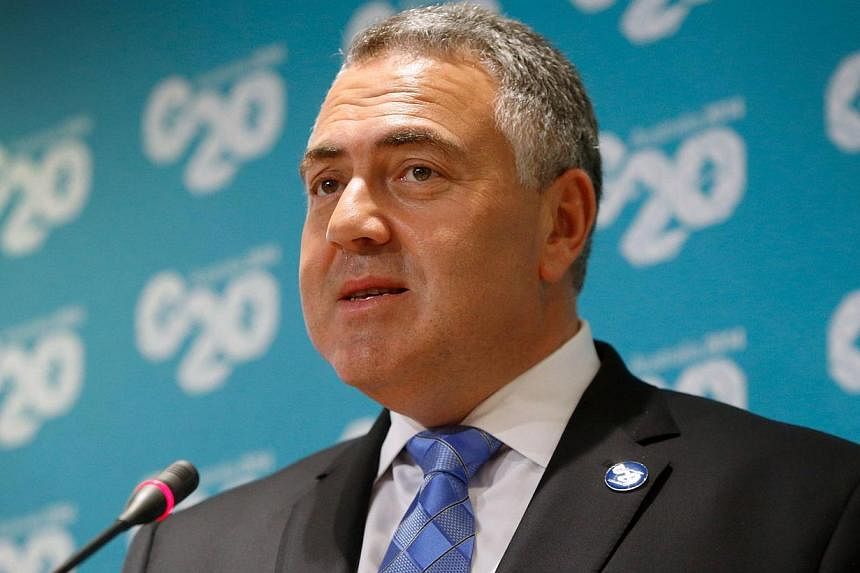SYDNEY (Reuters) - Australia's government forecast its budget deficit would balloon to A$40.4 billion (S$43.59 billion) in the year to June as falling prices for key resource exports and sluggish wage growth blew a gaping hole in tax revenues.
Releasing his midyear budget outlook on Monday, Treasurer Joe Hockey predicted the economy would grow by 2.5 per cent in 2014/15 before picking up to 3.5 percent over the next few years, while unemployment was likely to peak at 6.5 per cent.
"While there are positive signs of the Australian economy strengthening and transitioning towards broader-based drivers of growth, there is still much work to be done and budget repair will take time," said Hockey.
Just a year into office, Prime Minister Tony Abbott's government has suffered record low approval ratings, with the economy running into strong external headwinds.
The deficit for 2014/15 had been forecasted at A$29.8 billion in the May budget, while the 2015/16 shortfall was now put at A$31.2 billion, instead of A$17.1 billion.
The release was delayed for over an hour as the government reacted to a hostage siege in the heart of Sydney's financial district, which has diverted media coverage away from the budget update and the government's political troubles.
Hockey predicted tax receipts would be A$31 billion less than first hoped in the four years to 2017/18, due largely to a slide in the price of iron ore, Australia's biggest export earner. The government has had to cut its forecast from A$92 a tonne in May, to A$60 a tonne for the foreseeable future.
The government has also faced problems getting unpopular cost cutting and revenue raising measures through the Senate, which Hockey said cost another A$10.6 billion.
Still, the overall budget deficit for 2014/15 of 2.5 percent of gross domestic product (GDP) is relatively small by international standards, as is the government's debt burden which is seen peaking at 17 percent of GDP in 2017.
Ratings agencies Standard & Poor's and Moody's have already stated that Australia's triple A rating was not under threat from the current deterioration in the budget.
Bond investors also seem sanguine, with yields on 10-year government debt near the lowest since mid-2012 at 2.95 percent and not far from an all-time trough.

